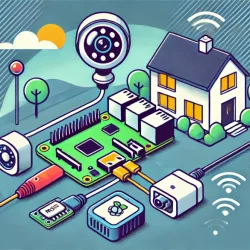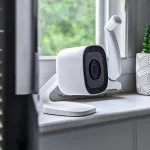Filtering Your Home’s Rainwater

Water, water everywhere, and yet much of it goes down the drain. For some people, this is no problem at all, after all running tap water is a commodity so widespread it is often easy to forget just how much of a luxury that can be. However, to others, it is a dreadful waste, especially as running water comes with a price tag each month. Those looking for truly self-sufficient homes that can run without having to rely on the services of various utility companies typically want to save as much water as they can. As such, collecting rainwater is one of the most primary means of making a home truly independent.
However, rainwater straight from the drain is seldom healthy for consumption. While we may think of it as being fresh, rain is frequently contaminated by various airborne pollutants that make it rather unsuitable for use. Then there is the amount of grime it may pick up running down roofs and being funnelled down various drains and pipes, many of which are notoriously difficult to clean. Usually, collected rainwater is used for things such as watering the garden, washing the car, or being used to flush toilets.
Finding an effective way of filtering your home’s rainwater is crucial if you intend it to see much use once collected. Fortunately, there are plenty of items available on the market that can help make your salvaged water more potable. There are also handy ways to get filtered rainwater for those on a more limited budget too!
Filtering Non-Drinking Rainwater
The simplest way to filter and reclaim rainwater from your drains is to attach a water barrel at the base of the waterspout. As water runs through your gutters, it’ll all be channelled into the barrel and quickly fill it up after a good few days of heavy rain. Of course, as we mentioned before, the water collected in the barrel may be dirty because of the filth that accumulates within the drain. Even if it does not look dirty, there may be contaminants too small to see with the naked eye. This will show if you want to use the water for, say, washing your car – you’ll soon wind up with dirty streaks left behind as the water dries.
To avert this, just attach a filter to the opening of your spout, or the faucet from which you drain the barrel. This will allow water to pass through while collecting the dirt within it, leaving your water moderately cleaner than it would otherwise be. However, dirt will still build up on the inside of the filter. Make sure you clean it out regularly to stop it from blocking up your gutters.
These systems are easy, cheap and relatively quick to install. However, they are also pretty noticeable and take up a fair amount of space. For those reasons, some people prefer to use more discrete underground water reclamation utilities instead.
These allow the water tanks to be hidden under a lawn or patio, which is a lot less unsightly than water barrels and frees up a lot more space within your yard. They are also capable of storing more water than barrels can. However, if you want this option, you’ll need to consider the ground requirements of the container. The larger the tank, the larger the area that will need to be excavated so it can be fitted. Cleaning will also become more of a chore, so remember the difficult maintenance if you decide for an underground water filtration system.
Filtering Drinking Water
For those who want to come off the water mains, this will probably include wanting to drink rainwater as well. This is generally not advised – rainwater can be very unhygienic. However it can be done, and the solutions are relatively simple. The simplest and cheapest is to boil the water before drinking it. However, that is time-consuming and can only serve limited volumes of water.
A more sophisticated and larger-capacity option is to use an ultra-violet filtration system. These help kill bacteria and microbes within the water by passing it through a chamber flooded with ultra-violet light. It can also filter for debris as well to a limited extent, but it is best to add extra filters to your water reclamation utilities just to be thorough. Be aware that the bulb within these systems needs to be regularly replaced (usually once or twice a year), and the filtration sections kept clean. Failure to keep up with the unit’s maintenance could mean contaminated water.
Another factor to consider is the costs. Usually, creating a water system that’s completely independent from the main water supply requires creating an entirely separate system alongside the one already present in your home. This can be very expensive and time-consuming, so be prepared to dig deep into your pockets for it. However, after a few years you’ll find the system will eventually start to pay for itself, so there are some who’d consider it worth the initial expense.
About the author:
Christian Mills is a blogger who writes about self-sufficiency to encourage home-owners to break free and stand alone. For those who wish to reclaim rain water, keeping your gutters maintained is more important than ever, and he recommends turning to thegutterexperts.com for gutter maintenance, cleaning, and repair. You can learn more about Christian on Google+.
More to Read:
Previous Posts:




